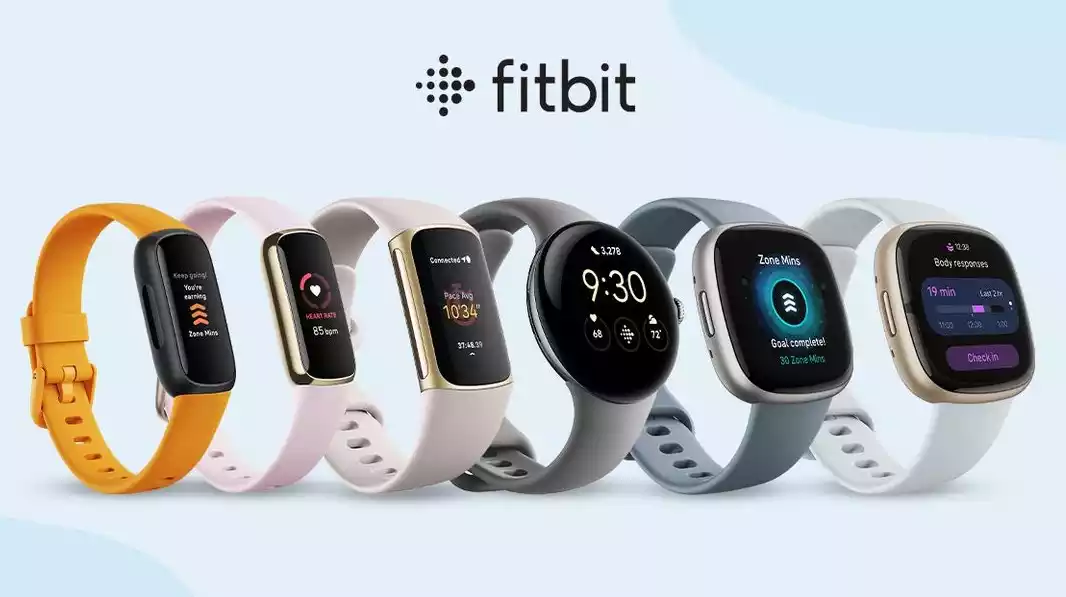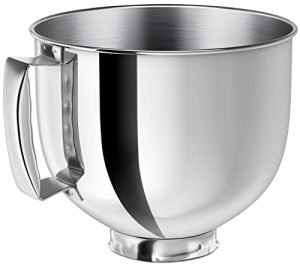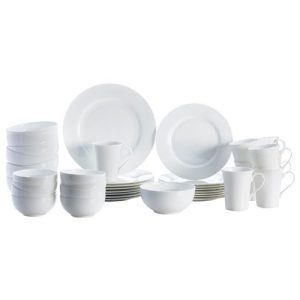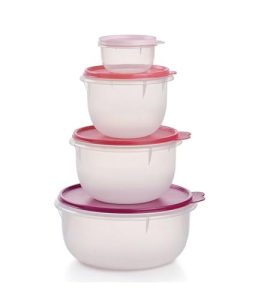Yes, Fitbit can monitor blood pressure, but not directly. Fitbit devices focus on tracking heart rate, steps, and sleep patterns.
They do not have a built-in blood pressure monitor. Fitbit has gained popularity for its ability to track various health metrics. Many users wonder if it can monitor blood pressure. While it does not measure blood pressure directly, it provides insights into your overall health.
Fitbit tracks heart rate, activity levels, and sleep patterns. These metrics help you understand your health trends. Knowing your heart rate and activity can help manage blood pressure. Though you need a separate device for blood pressure, Fitbit still offers valuable health data. It complements other health devices you may use. Understanding how Fitbit fits into your health routine can improve your wellness journey.
Introduction To Fitbit Technology
Fitbit has changed how we monitor our health and fitness. This wearable technology offers a range of features designed to help users lead healthier lives. But can Fitbit monitor blood pressure? Let’s dive into the world of Fitbit technology and explore its capabilities.
Brief History
Fitbit was founded in 2007 by James Park and Eric Friedman. They envisioned a product that could bring fitness tracking to everyone’s wrist. The first Fitbit device launched in 2009, focusing on tracking steps, distance, and calories burned.
Over the years, Fitbit expanded its product line and features. It now includes heart rate monitoring, sleep tracking, and more. Fitbit has become a leader in the wearable tech market.
Core Features
Fitbit devices offer many core features to help track health and fitness. Step counting remains a staple, encouraging users to stay active. Heart rate monitoring is also a key feature, providing insights into cardiovascular health.
Sleep tracking helps users understand their sleep patterns and improve their rest. Fitbit devices also offer guided breathing sessions to help manage stress. GPS tracking is available on some models, perfect for outdoor activities.
Fitbit’s app syncs with the device, offering detailed health data. Users can set goals, track progress, and join challenges with friends. Fitbit continues to innovate, adding new features to enhance user experience.
Health Monitoring Capabilities
Fitbits are known for their superb health tracking features. They can keep an eye on your heart rate, analyze your sleep, and even help you stay active. But can they monitor blood pressure? Let’s dive into the various health monitoring capabilities of Fitbit and see what these smart devices offer.
Heart Rate Tracking
One of the standout features of Fitbit is heart rate tracking. These devices use optical sensors to measure your pulse. This feature is incredibly useful for anyone looking to monitor their cardiovascular health. Whether you’re working out or just going about your day, Fitbit keeps tabs on your heart.
Imagine running up a flight of stairs and wondering how it affects your heart. With Fitbit, you can see changes in real-time. This can be very motivating and can help you to push your limits safely.
Sleep Analysis
Ever wonder why you feel tired even after sleeping for hours? Fitbit’s sleep analysis can provide the answers. By monitoring your sleep stages—light, deep, and REM—Fitbit gives you a detailed report of your night’s rest.
Not only does it tell you how long you slept, but also how well you slept. This can be a game-changer for improving your sleep habits. It’s like having a sleep expert right on your wrist!
Now, onto the big question: Can Fitbit monitor blood pressure? Currently, Fitbit does not offer direct blood pressure monitoring. However, it does provide some alternative insights. For example, by tracking your heart rate and other metrics, it can give you an idea of your overall cardiovascular health.
While direct blood pressure monitoring is not yet available, Fitbit is continually innovating. Who knows? The next model might just include this much-anticipated feature.
In summary, Fitbit’s health monitoring capabilities are impressive. While it may not yet track blood pressure, its heart rate tracking and sleep analysis are top-notch. These features make it a valuable tool for anyone looking to stay on top of their health.
Blood Pressure Monitoring
Blood pressure monitoring is vital for maintaining good health. It helps detect hypertension and other cardiovascular issues early. Many people wonder if their fitness tracker, like a Fitbit, can monitor their blood pressure. Let’s explore this topic in detail.
Current Technology
Fitbit focuses on tracking heart rate, sleep, and physical activity. It uses advanced sensors and algorithms. These features aim to provide insights into your overall health. But does it monitor blood pressure? Currently, Fitbit devices do not have the capability to measure blood pressure directly.
Accuracy Concerns
Blood pressure monitoring requires precise equipment. It often involves an inflatable cuff to get accurate readings. Wrist-based devices face challenges in maintaining such accuracy. Fitbit’s sensors are designed for continuous heart rate monitoring. This is different from the intermittent and precise nature of blood pressure readings.
Some other wearables claim to measure blood pressure. They use optical sensors and algorithms. But their accuracy is often questioned by experts. Fitbit prioritizes providing reliable data. This is why it has not yet introduced blood pressure monitoring.
Fitbit’s Approach To Blood Pressure
Fitbit’s approach to blood pressure monitoring has been a topic of interest. Fitbit is known for its fitness tracking devices. Many users wonder if these devices can monitor blood pressure. Let’s explore Fitbit’s developments and future plans in this area.
Recent Developments
Recently, Fitbit has made strides in health tracking. They have introduced features that monitor various health metrics. Heart rate, sleep patterns, and physical activity are among them. Blood pressure monitoring is a newer focus for Fitbit. This feature is not widely available yet. But Fitbit is working on making it more accessible.
Fitbit has partnered with health research institutions. They aim to study blood pressure monitoring through wearable devices. This collaboration helps improve accuracy and reliability. Some Fitbit devices now include sensors that can estimate blood pressure. This is done through pulse arrival time (PAT) technology. PAT measures the time it takes for a pulse to travel between two points. This data can estimate blood pressure levels.
Future Prospects
Fitbit’s future in blood pressure monitoring looks promising. They continue to invest in research and development. Their goal is to provide accurate and reliable blood pressure readings. Fitbit aims to integrate this feature into more devices. This will make blood pressure monitoring more accessible to users.
Fitbit is also working on improving user experience. They plan to enhance the interface for blood pressure tracking. This will make it easier for users to understand their readings. Fitbit also aims to provide personalized health insights. These insights will help users manage their blood pressure better.
Fitbit’s approach to blood pressure monitoring shows their commitment to health. They strive to offer comprehensive health tracking solutions. As technology advances, we can expect more innovations from Fitbit in this area.
User Experiences
User experiences with Fitbit’s blood pressure monitoring feature vary widely. Some users share positive stories, while others report common issues. This section explores both perspectives.
Success Stories
Many Fitbit users find the blood pressure monitoring feature helpful. They share stories of how it aids in tracking their health. One user mentioned, “I can now monitor my blood pressure daily. It gives me peace of mind.” Another user said, “Fitbit helps me keep an eye on my health trends. It’s very convenient.”
Several users appreciate the accuracy and ease of use. They find the data reliable and insightful. For instance, a user noted, “The blood pressure readings match my doctor’s records. It’s impressive.” These success stories highlight the positive impact on users’ health monitoring routines.
Common Issues
Despite the positive experiences, some users encounter issues. A common complaint is inconsistent readings. One user shared, “Sometimes, the readings fluctuate a lot. It can be confusing.” Another issue is the need for frequent calibration. A user said, “I have to calibrate it often. It’s a bit annoying.”
Some users also mention connectivity problems. They find it challenging to sync their devices. For example, one user reported, “The app doesn’t always sync with my phone. It’s frustrating.” These common issues show there is room for improvement in the feature’s reliability.

Credit: highcountryneurology.com
Comparing Fitbit With Competitors
Fitbit is renowned for its wide range of features, but how does it stack up against competitors when it comes to monitoring blood pressure? In this section, we’ll delve into how Fitbit compares with other brands, weigh the pros and cons, and help you make an informed decision. Whether you are a tech enthusiast or just someone looking to keep an eye on your health, this comparison will provide you with valuable insights.
Other Brands
When it comes to monitoring blood pressure, several other brands are also in the game. Let’s take a look at some of the popular ones:
- Apple Watch: Known for its sleek design and user-friendly interface, Apple Watch offers numerous health-tracking features. However, it currently does not have a built-in blood pressure monitor. Users need to rely on third-party apps and external devices.
- Samsung Galaxy Watch: This watch has a built-in blood pressure monitoring feature, but it requires calibration with a traditional blood pressure cuff. It’s an effective solution but might seem cumbersome for some users.
- Omron HeartGuide: Unlike other smartwatches, Omron HeartGuide is specifically designed for blood pressure monitoring. It provides accurate readings but lacks the variety of features found in devices like Fitbit and Apple Watch.
Pros And Cons
Let’s break down the pros and cons of using Fitbit for blood pressure monitoring compared to its competitors:
| Device | Pros | Cons |
|---|---|---|
| Fitbit |
|
|
| Apple Watch |
|
|
| Samsung Galaxy Watch |
|
|
| Omron HeartGuide |
|
|
In summary, while Fitbit excels in offering a variety of health-tracking features and a user-friendly interface, it falls short in the blood pressure monitoring department compared to other brands like Samsung Galaxy Watch and Omron HeartGuide. However, if you are looking for an all-rounder with a strong community and comprehensive health insights, Fitbit remains a solid choice.
Expert Opinions
Fitbit devices are popular for tracking fitness and health metrics. Many users wonder if they can monitor blood pressure. To answer this, we turn to expert opinions. We will explore insights from the medical community and tech reviews.
Medical Community Insights
The medical community emphasizes the importance of accurate blood pressure monitoring. Doctors and health professionals stress that precise data is crucial. They agree that traditional blood pressure cuffs are reliable. These devices have been tested and approved for medical use.
Fitbit devices currently do not have FDA approval for blood pressure monitoring. Experts suggest using a validated blood pressure monitor. They believe wearable technology can complement traditional methods. But, they do not replace them yet.
Tech Reviews
Tech enthusiasts have tested Fitbit’s capabilities extensively. They praise Fitbit for its range of health tracking features. Yet, they note the absence of direct blood pressure monitoring. Reviewers highlight Fitbit’s potential in the future.
Fitbit may incorporate blood pressure monitoring in upcoming models. Tech experts expect advancements in sensor technology. They also point out the need for regulatory approvals. Until then, users should rely on dedicated devices for blood pressure readings.

Credit: fitstraps.co.uk

Credit: www.notebookcheck.net
Frequently Asked Questions
Is There A Fitbit Watch That Monitors Blood Pressure?
No, Fitbit does not currently offer a watch that monitors blood pressure. They focus on fitness tracking and heart rate monitoring.
Which Smartwatch Can Measure Blood Pressure?
The Samsung Galaxy Watch 3 and Galaxy Watch Active 2 can measure blood pressure. They offer health-tracking features.
Is There A Fitbit App For Blood Pressure?
No, there is no Fitbit app specifically for blood pressure monitoring. Fitbit devices primarily track heart rate, steps, and sleep.
Is There A Wearable Device For Blood Pressure?
Yes, there are wearable devices for blood pressure monitoring. Popular options include smartwatches and fitness trackers.
Conclusion
Fitbit does not yet monitor blood pressure directly. It tracks heart rate and other health metrics. These features help you understand overall health. Fitbit remains a valuable tool for fitness tracking. Future updates may include more advanced health monitoring. For now, combine Fitbit data with regular check-ups.
This ensures accurate blood pressure management. Stay informed. Keep moving. Prioritize your health.



